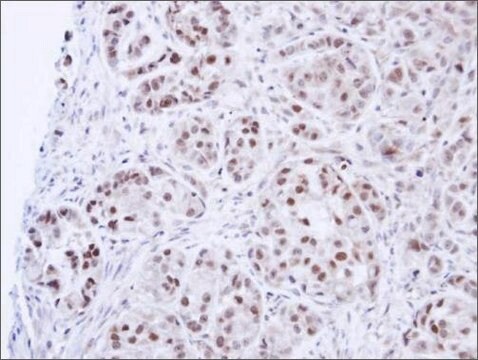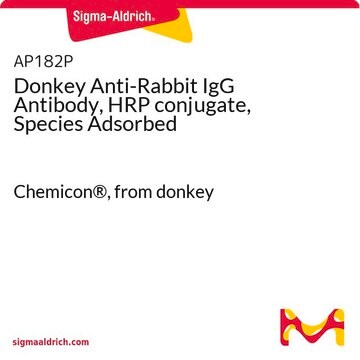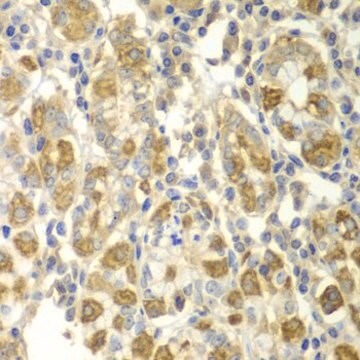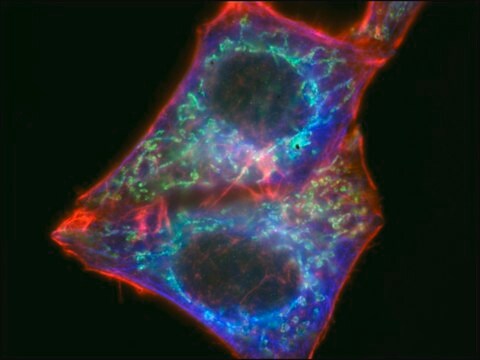SAB4200042
Anti-USP7 antibody, Rat monoclonal
clone USP 3D8, purified from hybridoma cell culture
Synonym(s):
Anti-HAUSP, Anti-TEF1, Monoclonal Anti-USP7 antibody produced in rat
About This Item
Recommended Products
biological source
rat
conjugate
unconjugated
antibody form
purified from hybridoma cell culture
antibody product type
primary antibodies
clone
USP 3D8, monoclonal
form
buffered aqueous solution
mol wt
antigen ~130 kDa
species reactivity
human, rat
packaging
antibody small pack of 25 μL
technique(s)
immunocytochemistry: suitable
immunoprecipitation (IP): suitable
western blot: 2-4 μg/mL using HeLa cell extracts
UniProt accession no.
shipped in
dry ice
storage temp.
−20°C
target post-translational modification
unmodified
Gene Information
human ... USP7(7874)
General description
Specificity
Application
- immunoblotting
- immunoprecipitation
- immunocytochemistry
Biochem/physiol Actions
Target description
Physical form
Storage and Stability
Disclaimer
Not finding the right product?
Try our Product Selector Tool.
Storage Class
10 - Combustible liquids
flash_point_f
Not applicable
flash_point_c
Not applicable
Certificates of Analysis (COA)
Search for Certificates of Analysis (COA) by entering the products Lot/Batch Number. Lot and Batch Numbers can be found on a product’s label following the words ‘Lot’ or ‘Batch’.
Already Own This Product?
Find documentation for the products that you have recently purchased in the Document Library.
Our team of scientists has experience in all areas of research including Life Science, Material Science, Chemical Synthesis, Chromatography, Analytical and many others.
Contact Technical Service







